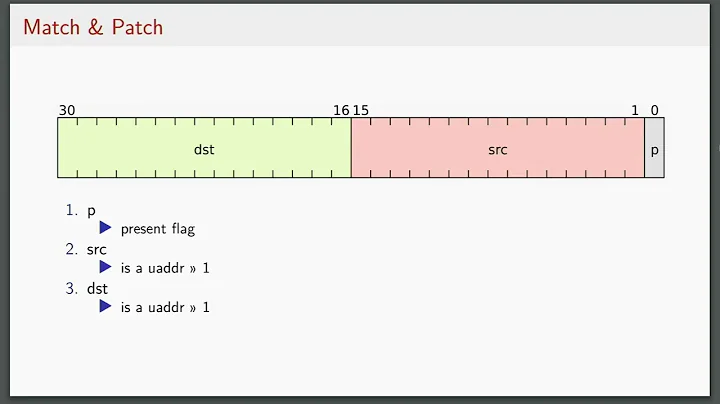The Evolution of Netbooks: Opportunities for Developers
Table of Contents
- Introduction
- The Growth of Netbooks
- The Netbook Market in Taipei
- The Evolution of Netbook Design
- The Importance of Battery Life
- The Changing Perception of Netbook Quality
- The Opportunity for Developers
- The Intel Adam Developer Program
- Monetizing Netbook Applications
- The Potential of the Netbook Market
- Final Thoughts
The Growth of Netbooks 📱
The netbook market has undergone a dramatic transformation in the last two years. Since the introduction of the first netbooks, the industry has experienced tremendous growth, with the Intel Atom platform playing a key role in this success. Today, every major manufacturer has a netbook in their product line, resulting in fierce competition in the market. In Taipei, where I am based, netbooks have become incredibly popular, outselling traditional notebooks for the first time in history. People can be seen using their netbooks everywhere, from coffee shops to parks, highlighting the versatility and convenience of these devices. With long battery life and the ability to connect to the internet, netbooks have become the go-to personal computers for many users.
The Netbook Market in Taipei 🏢
In Taipei, the adoption of netbooks has reached new heights. In fact, in July, more netbooks were sold than notebooks, marking a significant shift in consumer preferences. Enter any Starbucks in Taipei, and you will find that approximately 80% of customers are using netbooks. This trend demonstrates the growing popularity of netbooks and their ability to cater to the needs of users on the go. Unlike heavy and cumbersome 17-inch notebooks, netbooks are lightweight and easily portable. Their compact size makes them ideal for mobile computing, and with battery life of up to 8 hours, users can enjoy all-day computing without worrying about running out of power. Netbooks have truly become the device of choice for individuals who want to stay connected wherever they are.
The Evolution of Netbook Design 💻
The netbook market has evolved significantly over the past two years. While some initially criticized netbooks for their low build quality and perceived cheapness, manufacturers have risen to the challenge and introduced impressive devices that rival traditional laptops. Companies like Sony and Toshiba have stepped up their Game, offering netbooks with sleek aluminum cases and chiclet keyboards. This shift towards higher-quality materials and designs has transformed the perception of netbooks. What was once considered a budget option is now a stylish and reliable choice for consumers. The improved build quality not only enhances the user experience but also demonstrates the market's potential for growth.
The Importance of Battery Life 🔋
One of the key selling points of netbooks is their impressive battery life. Unlike many laptops, which often struggle to last a full workday without needing to be plugged in, netbooks offer up to 8 hours of continuous use on a single charge. This extended battery life is a game-changer, allowing users to stay productive and connected even when they are away from power outlets. Whether it's a business professional working remotely or a student studying in a café, netbooks provide the freedom to work and play without the constant worry of running out of battery. The demand for long-lasting devices has contributed to the rapid growth of the netbook market, and manufacturers who can deliver on this front have a competitive edge.
The Changing Perception of Netbook Quality 📲
As the netbook market matures, both consumers and manufacturers have recognized the importance of quality. While early netbooks were often criticized for their subpar build, the tide has shifted, and the market now offers a wide range of high-quality devices. Today, netbooks are considered a viable option for professionals and students alike. The evolution of netbook design, as seen in the use of premium materials and improved build quality, has played a significant role in changing this perception. Consumers no longer see netbooks as inferior alternatives to laptops but instead as powerful and reliable computing devices in their own right. This shift in perception has opened up a world of opportunities for developers to create innovative applications and software specifically tailored to netbook users.
The Opportunity for Developers 🖥️
The rapid growth of the netbook market presents a unique opportunity for developers. With an estimated 45 million netbooks expected to be in circulation by the end of the year, the potential user base for netbook applications is enormous. Developers who are already creating software for smartphones like iPhones and Android devices can easily pivot their skills to develop applications for netbooks. The Intel Atom processor, in combination with the Intel Adam developer program, provides developers with the necessary tools and resources to bring their ideas to life. Furthermore, the launch of a central app store by Intel offers a platform for developers to monetize their creations. This ecosystem opens up avenues for both developers and manufacturers to generate additional revenue in a market where profit margins are traditionally low.
The Intel Adam Developer Program 💡
The Intel Adam developer program represents a significant step forward for netbook developers and manufacturers. By providing a centralized platform for developers to showcase and monetize their applications, Intel is creating an ecosystem that benefits both parties. Manufacturers can leverage the app store to offer additional value to customers, while developers can tap into a rapidly growing market and reach millions of potential users. The success of similar app stores for smartphones, such as Apple's App Store, has demonstrated the viability and profitability of these marketplaces. With the Intel Adam developer program, developers have a unique opportunity to establish themselves in a new and expanding market.
Monetizing Netbook Applications 💰
Monetizing netbook applications can be a challenge due to the traditionally low profit margins associated with netbooks. However, with the right strategy, developers can generate revenue and capitalize on the growing netbook market. By leveraging the Intel Adam developer program and the central app store, developers can reach a wide audience of netbook users and monetize their applications through sales, subscriptions, or in-app purchases. Additionally, developers can explore partnerships with manufacturers to pre-install their applications on new netbook models, providing an additional revenue stream. The key is to create applications that offer unique value to netbook users while also considering their mobility and productivity needs.
The Potential of the Netbook Market 🌟
The netbook market is poised for continued growth and innovation. With the demand for portable, long-lasting computing devices on the rise, netbooks are well-positioned to meet these needs. The evolving design and improved build quality of netbooks have transformed them from budget options to premium computing devices. As developers continue to create innovative and tailored applications for netbooks, the possibilities for this market are endless. The Intel Adam developer program and the central app store provide developers with the tools and resources they need to succeed in this promising market. Whether it's creating productivity software, entertainment apps, or specialized tools, developers have the opportunity to Shape the future of netbook computing.
Final Thoughts 💭
The netbook market has come a long way in a short period, driven by advancements in technology and changing user preferences. Netbooks have transformed from simple budget devices to powerful, stylish, and portable computing tools. With their long battery life and ability to connect to the internet, netbooks have become indispensable for users who value mobility and productivity. For developers, the netbook market offers a promising landscape to create and monetize applications. The Intel Adam developer program and the introduction of a central app store provide developers with the necessary resources to tap into this growing market. As the netbook market continues to evolve, developers have the opportunity to shape the future of computing and offer innovative solutions to meet the needs of netbook users.
Highlights
- The netbook market has undergone a dramatic transformation in the last two years, driven by the success of the Intel Atom platform.
- Netbooks have become incredibly popular in Taipei, outselling traditional notebooks and becoming the preferred device for mobile computing.
- Manufacturers have improved the build quality of netbooks, offering sleek designs and premium materials.
- Netbooks offer impressive battery life, allowing users to stay productive and connected throughout the day.
- The perception of netbooks has evolved, with consumers recognizing them as reliable and powerful computing devices.
- The netbook market presents a significant opportunity for developers, with a large user base and the support of the Intel Adam developer program.
- Monetizing netbook applications can be achieved through the central app store and partnerships with manufacturers.
- The netbook market has immense potential for growth and innovation, with developers shaping its future through tailored applications.
FAQ
Q: Are netbooks becoming more popular than laptops?
A: In certain markets, such as Taipei, netbooks have indeed surpassed traditional laptops in popularity. Their portability and long battery life make them an attractive option for users on the go.
Q: Can developers make money from creating netbook applications?
A: Yes, developers have the opportunity to monetize their netbook applications through sales, subscriptions, in-app purchases, and partnerships with manufacturers. The central app store provided by Intel is a platform for developers to reach a wide audience and generate revenue.
Q: What makes netbooks different from smartphones or laptops?
A: Netbooks offer a unique balance between portability and functionality. They provide a larger screen and keyboard compared to smartphones while still being lightweight and highly portable. This makes them ideal for users who require more screen real estate and prefer a physical keyboard for productivity.
Q: Can developers repurpose their smartphone applications for netbooks?
A: Yes, developers who are already creating software for smartphones can easily adapt their applications for netbooks. The Intel Atom processor and the resources provided by the Intel Adam developer program allow developers to optimize their applications for netbook users.
Q: How do netbooks contribute to the growth of the overall computing market?
A: Netbooks have experienced significant growth in a market where other computing devices have plateaued. They offer a unique combination of portability, long battery life, and affordability, making them accessible to a wide range of users. This growth drives innovation and provides new opportunities for developers and manufacturers alike.
Resources
 WHY YOU SHOULD CHOOSE TOOLIFY
WHY YOU SHOULD CHOOSE TOOLIFY

























